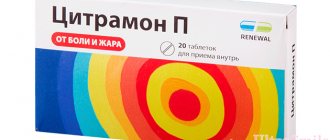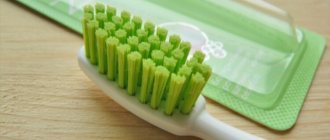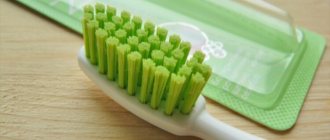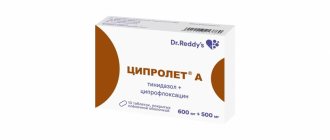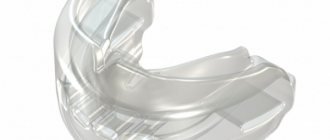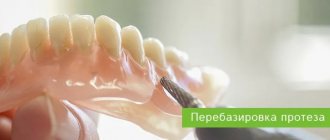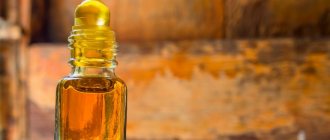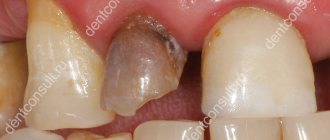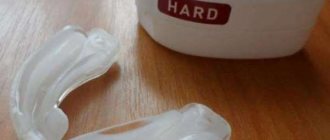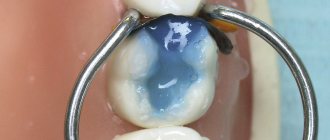January 10, 2019
“Stomatidin” is one of the few broad-spectrum drugs that are actively used in dentistry to solve dental problems, and have almost no side effects. Naturally, this statement is only true if you do not neglect the instructions for use and use the composition in acceptable dosages. The price of the medicine, with all its positive advantages, is also very reasonable - about 190 rubles per 200 milliliters. All that remains is to find out about the features of this product, and the editors of the UltraSmile.ru portal will help you with this.
Reviews from those who have used the medicine
As reviews show, people mainly use Stomatidine for stomatitis. The drug copes with its task perfectly.
“The instructions say that the medicine should not be given to children under 4 or five years of age. And my Egorka recently had stomatitis as a consequence of a sore throat. So he was only 2.5 years old, and the doctor recommended “Stomatidin” - they smeared it on his gums directly from the cotton wool, because They were afraid that he would swallow it. And it helped a lot, by the way. We didn’t notice any side effects. But of course I wouldn’t risk giving it myself.”
Anna, babyblog.ru
“I gave my daughter Stomatodin. She is 5.5 years old. True, without a doctor's prescription. I poured it into the cap that screws the bottle on, and she swallowed it all. We were very scared, we even called an ambulance and gave us activated charcoal. The doctors told me to monitor my condition and call if anything happened; they also warned me that this could cause a complication on my kidneys and even advised me to take a urine test if I was really worried. Everything turned out fine for us, but girls, be careful with this medicine, especially when you give it to children, even if they are older than indicated in the instructions.”
Aliya, komarovskiy.net
“It smells and tastes kind of disgusting, although some say it’s supposedly sweet. Personally, our son was prescribed it to treat his throat, but it didn’t work. It caused a gag reflex even without swallowing, although I had to apply it on gauze and almost push it down my throat to treat the inflamed areas.”
KlaraT, otzovik.com
“I will say that the drug is quite weak, it works only in complex therapy, and as an independent remedy it has little effect. And I also noticed a side effect: after taking it, food changed its taste. For example, I eat salty food, but it tastes bitter. And this happened all the way while they were being treated. The course of treatment was 7 days.”
Mamaeva Tatyana, woman.ru
Notice
: Undefined variable: post_id in
/home/c/ch75405/public_html/wp-content/themes/UltraSmile/single-item.php
on line
45 Notice
: Undefined variable: full in
/home/c/ch75405/public_html/wp-content /themes/UltraSmile/single-item.php
on line
46
Rate this article:
( 4 ratings, average: 5.00 out of 5)
prevention
- According to the official website of the manufacturer bosnalijek.eu
Features of Stomatidin for stomatitis
Stomatidin is one of the best remedies for dental pathologies. This is an effective antiseptic drug based on hexetidine.
Stomatidin is available in the form of an alcohol solution and is available without a prescription. The drug has a red tint. The average price of the drug is 190 rubles.
Excipients of Stomatidin:
- menthol;
- saccharin;
- lemon acid;
- polysorbate;
- ethanol;
- azorubine;
- propylene glycol;
- water.
Stomatidin is widely used to treat pathologies of otolaryngology and dentistry. This is one of the most reliable and proven remedies on the modern pharmacological market.
The medicine combines well with other drugs. Stomatidin is approved for use during pregnancy and lactation due to the fact that it acts locally and cannot be absorbed into the placenta. The drug does not affect the reaction rate, so it can be taken while driving.
Comments
A week ago I had a tooth removed after periodontitis. Three days after this, sharp pain appeared. I saw a doctor only on the sixth day. It turned out to be alveolitis. She prescribed me to rinse my mouth with Stomatidine, and also to put tampons soaked in the solution into the hole. I have Chlorhexidine at home. I read that it can also be used for this disease, isn’t it better to save money?
Ivan (01/22/2019 at 02:14) Reply to comment
- Dear Ivan, as for Chlorhexidine, you can read an article about the benefits and properties of this wonderful drug on our website. But as far as recommendations are concerned, we still advise you to listen to what your doctor says and use Stomatidine. You will be interested to know that some studies based on the comparison of these two drugs have shown the greater effectiveness of Stomatidine when used during the treatment of alveolitis. Due to its prolonged antibacterial and anti-inflammatory action, the solution helps to achieve 100% sterility of the socket and actively affects the microflora of the socket, which provoked the development of a purulent-inflammatory process. With it, the treatment process will occur faster than with Chlorhexidine.
Editorial staff of the portal UltraSmile.ru (01/27/2019 at 08:44) Reply to comment
Can the drug be given to elderly people over the age of 60 when the person had stomach problems and there will be no side effects. From your article, I simply did not find any recommendations on the use of Stomatidine for people of retirement and elderly age.
Yana (01/30/2019 at 08:50) Reply to comment
- Yana, this medicine cannot be taken orally, so there should be no consequences for the gastrointestinal tract. According to the instructions, there are no (upper) age restrictions.
Editorial staff of the portal UltraSmile.ru (02/01/2019 at 07:14) Reply to comment
What can you say about the recommendation for using the product “Stomatidin” and rinsing the mouth with soda? Will there be any problems if you periodically use both options to improve the health of your gums and teeth?
Polina (01/30/2019 at 04:18 pm) Reply to comment
- Both remedies should be used as prescribed by a doctor and in accordance with the recommendations that he gives specifically in your situation.
Editorial staff of the portal UltraSmile.ru (01/31/2019 at 15:17) Reply to comment
Good afternoon. For many years, I have been getting stomatitis in my mouth. At first I didn’t pay attention to it, but when it became more frequent, I decided to see a doctor. I couldn’t achieve any results, and then one evening, while browsing the Internet, I saw this site, where I found an article about the treatment of stamatitis, it soon went away for me and my life improved. Thank you.
sasha11 (01/30/2019 at 06:15 pm) Reply to comment
- Thank you! Your comment is an indicator to us that our work is not in vain!
Editorial staff of the portal UltraSmile.ru (01/31/2019 at 15:12) Reply to comment
A child's tooth was removed. The doctor prescribed Stomatidin. But the recommendation for using the product “Stomatidin” states that it is not used in children under 5 years old (we are almost 4 years old)?
Natalya (02/03/2019 at 23:27) Reply to comment
A child's tooth was removed. The doctor prescribed Stomatidin. But the recommendation for using the product “Stomatidin” states that it is not used in children under 5 years old (we are almost 4 years old)? Or maybe choose some other remedy?
Natalya (02/03/2019 at 23:27) Reply to comment
The recommendations for using the product “Stomatidin” turned out to be certainly useful, but is there any point in taking a smaller dose or diluting it to save money or there will be no results?
Lera (02/04/2019 at 18:00) Reply to comment
The recommendations for using the product “Stomatidin” have become very useful for me, thank you) If you think about it thoroughly, is it still better to take an aerosol or a solution? Or is it better to do both, an aerosol on the road and a solution at home?
Anna (02/04/2019 at 18:15) Reply to comment
Due to long-term drug treatment, I developed stomatitis. We prescribed this drug and it helps a lot. Now my 3.5 year old daughter has the same problem. I understand that it cannot be given to small children because they swallow the medicine. And if the child knows how to spit (brush her teeth herself), can you treat the gums with a small amount?
Zhanna (02/04/2019 at 08:48 pm) Reply to comment
Recommendations for using the drug "Stomatidin" are certainly useful, but if you reduce the dose and drink two or even three times less, you can drive and will the drug be of any use?
Sveta (02/12/2019 at 11:15) Reply to comment
Write your comment Cancel reply
Causes and forms of stomatitis
With stomatitis, ulcers are located on the lips and cheeks, covering the bottom of the mouth, the area under the tongue, on the palate and tonsils. The pathology can be recognized by the characteristics of the wounds: they are round or oval, have a whitish center and smooth edges, and there is a red halo around them.
Causes of stomatitis:
- trauma to the mucous membranes of the mouth;
- use of hygiene products with sodium sulfate;
- psycho-emotional instability;
- lack of vitamin food;
- alcohol and cigarette abuse;
- allergy;
- hormonal disbalance;
- bacterial activity;
- some diseases;
- dehydration;
- low-quality dentures.
Stomatitis often recurs. Most often, the disease first develops in patients aged 10-20 years. The disease is not contagious, but in most people it is chronic.
Forms of stomatitis
- Fungal. It is provoked by yeast-like fungi. The disease is typical of children whose saliva does not contain enough acidic elements to fight pathogens.
- Herpetic. This type of stomatitis is caused by the simple herpes virus. Infection can occur at home and through airborne droplets.
- Bacterial. It develops when, due to injury, an infection gets into the wound.
- Allergic. It is a symptom of a severe allergic reaction.
- Erosive-ulcerative. Extensive damage to the oral mucosa.
- Catarrhal. The condition is considered to be a mild form of allergy.
Stomatidine in the treatment of children
Since Stomatidin cannot be swallowed due to its alcohol content, the minimum age for use is precisely defined. Children can use the drug when they have learned to rinse their mouth and spit out the liquid. A similar skill is developed in children after 5 years.
The treatment regimen for stomatitis in children is similar to that in adults. It is necessary to rinse your mouth twice a day for 30 seconds, using 10-15 ml of solution. Ulcers due to stomatitis in younger children are only allowed to be lubricated with Stomatidine.
Analogues of Stomatidin
Direct analogues of Stomatidin are Hexoral, Stopangin, Hepilor, Maxisprey. These drugs contain hexatidine and act in a similar way.
However, Geksoral and Stopangin additionally contain extracts of eucalyptus, mint, cloves, and orange. These components give medicines a pleasant taste and additional healing properties. Stomatidin analogues have a lower alcohol content. The choice of forms is extensive: solutions, tablets, sprays.
Features of analogues:
- Hexoral (solution, spray, tablets). The drug has antiseptic, antimicrobial, analgesic and deodorizing properties. Effective against fungi, as well as gram-negative and gram-positive organisms. The principle of action is based on the destruction of the shell of microorganisms and the suppression of oxidative reactions. Fungi die when membrane connections are disrupted. Hexoral is contraindicated in children under 3 years of age and in patients with hypersensitivity to the components. Cost of the drug: solution - 250 rubles, aerosol - 300 rubles, tablets - 180 rubles.
- Stopangin (solution, spray, tablets). This is a complex drug that has antimicrobial, antifungal and anti-inflammatory effects. Contraindications include age under 8 years, pregnancy under 4 months, dry pharyngitis and hypersensitivity to components. Cost: solution – 100 rubles, spray – 250 rubles.
- Maxicold ENT (solution, spray). It has analgesic, antifungal and antimicrobial effects. Not prescribed for atrophic pharyngitis and hypersensitivity, as well as for children under 3 years of age. The cost of the spray is 200 rubles.
How can Stomatidin be replaced in the treatment of stomatitis?
- Medasept (solution). The drug has an antiseptic, irritant and disinfectant effect. The active substance is ethanol, which produces a tanning effect on the mucous membrane. Medacept is not prescribed to children under 14 years of age and to patients with acute inflammation of the skin.
- Hexicon (solution). Due to the activity of chlorhexidine digluconate, the drug is an effective antiseptic. The drug has no effect on acid-fast bacteria and viruses. Contraindications include only individual intolerance.
- Decathylene (lollipops). A fungistatic, analgesic and bactericidal drug based on dequalinium chloride, which helps with mixed infections of the mouth and pharynx. Contraindications have not been studied.
- Lizak (tablets). An effective antiseptic, antibacterial and fungicidal agent with a mild anti-inflammatory effect. The active components are lysozyme and dequalinium chloride. The drug is not absorbed into the bloodstream. Lizak is not prescribed for galactosemia and lactase deficiency. Allowed for children over 4 years old.
- Faringosept (tablets). Due to the high effectiveness of the drug, it can be used as monotherapy for diseases of the oral cavity and pharynx. Thanks to the activity of ambazon, the drug copes with streptococci, staphylococci and pneumococci.
- Metrodent (gel). Antiseptic and antimicrobial drug based on chlorhexidine and metronidazole. Not prescribed to patients under 16 years of age.
- Riodoxol (ointment). An effective remedy in the treatment of pathologies caused by the herpes virus. Riodoxol gives an antifungal effect for fungal stomatitis.
- Etonium (powder, paste, ointment). I often prescribe this drug for lesions of the oral mucosa. It has a bacteriostatic and bactericidal effect, promotes pain relief and healing of ulcers, destroys staphylococci and streptococci, and detoxifies toxins.
- Givalex (solution, spray). A strong antibacterial, anti-inflammatory and antifungal agent with an analgesic effect. Based on hexetidine, chlorotutanol and choline salicylate.
- Miramistin (solution, ointment). An antiseptic that increases the permeability of membranes of pathogenic microorganisms.
One bottle of Stomatidin is enough for a standard weekly course of treatment. This is often sufficient for complete recovery. Signs of retreat of stomatitis should appear on the third day of treatment.
Sources used:
- Prevention of inflammatory periodontal diseases. Textbook / A.I. Abdurakhmanov et al. - M.: GEOTAR-Media, 2015.
- Healthy teeth and gums / M.Sh. Mansagarian. - M.: Phoenix, 2006.
- Adaptive mechanisms of local immunity of the oral and pharynx mucosa / Maryam Gumerova, Liliya Aznabaeva and Nina Arefieva. - M.: LAP Lambert Academic Publishing, 2013.
Mechanism of action
The bactericidal effect is ensured even at low concentrations of hexetidine. The main feature of the substance is that microorganisms are not able to develop resistance to it: the substance acts on thiamine, which is part of the favorable environment.
The antiseptic effect of Stomatidin is ensured by the ability of hexetidine to suppress the secretion of thiamine (a vitamin necessary for pathogenic gram-negative and gram-positive flora for reproduction). The substance has a similar effect on mushrooms.
The antiseptic effect of Stomatidin is enhanced by the ethyl alcohol in the composition. Alcohol increases blood circulation in the mucous membranes, thereby improving tissue metabolism. This way the affected areas recover faster. Another component of the drug, racementol, also helps in regeneration.
The anesthetic effect is possible due to the activity of methyl salicylate. This property of Stomatidin is especially important for stomatitis, when the oral cavity is covered with painful ulcers. The drug is able to quickly anesthetize the mucous membrane, providing comfort for 8 hours. In addition to all this, the components of Stomatidin accelerate epithelization, thereby preventing caries.
Efficacy of Stomatidin
One of the advantages of Stomatidin is its local effect. The components of the drug are not absorbed into the systemic bloodstream and therefore do not affect the functioning of the body. At the same time, the product effectively destroys a variety of bacteria, suppresses their reproduction, and prevents the spread of bacterial infection. Stomatidin also helps with diseases caused by pathogenic fungi (in particular, Candida fungi).
Main properties of Stomatidin:
- anti-inflammatory;
- deodorizing;
- painkiller.
If the patient has an infection of the oral cavity and pharynx, Stomatidin is included in complex therapy. The medicine works well with drugs that contain zinc and fluorine.
The main substance - hexetidine - is active in the mucous membrane for 70 hours, which is quite enough to stop the inflammatory process (50-60 hours). Since the components do not penetrate into the blood, they are excreted from the body with saliva.
Indications and contraindications
The main contraindication to the use of Stomatidin is individual intolerance to hexetidine or the auxiliary components of the drug. The medicine is not intended for patients under 4 years of age.
Conditions that require the use of Stomatidin:
- different forms of stomatitis;
- gingivitis (inflammation of the gums);
- periodontitis and periodontal disease;
- alveolitis (suppuration after tooth extraction);
- candidiasis;
- glossitis (inflammation of the tongue);
- oral injuries;
- infectious foci of a viral nature in the teeth;
- bacterial infection;
- otolaryngological pathologies (laryngitis, pharyngitis, tonsillitis);
- damage to the larynx;
- after surgery in the oral cavity and larynx;
- prevention of caries;
- for oral hygiene in case of unpleasant odor;
- prevention of malignant tumors of the mouth and larynx.
Side effects when treating stomatitis with Stomatidine are rare. Sometimes local irritation, an allergic reaction, numbness of the tongue, impaired taste and smell occur. If at least one adverse reaction occurs, you should stop using the drug. If symptoms do not go away on their own, you should immediately consult a doctor.
